Bootable USB is the storage to boot or start a Computer Operating System for the replacement of previously used CD-ROM. When the computer loaded it’s BIOS setting it can be used for installing OS. In the BIOS menu, you can change the first boot priority whenever it is plugged into a PC. Using any of the best USB Bootable Software Win 10, it is created by writing the ISO (bootable) file of the desired software. In this article, we will try to show, “How to Create Bootable USB” and the review of some Bootable Software for Windows 10.
Bootable USB
Bootable USB means any external USB drive can be used to install Windows to any computer. Before start, you have to sure that your PC is USB locked or not? To create any bootable hard drive we would strongly recommend to use at least 8 GB Pendrive. But, you may try to use it by 4 GB also. To make the external drive bootable we will show bost east and hard way. Moreover, we will give some Best USB Bootable Software Win 10 to choose your best one.
How to Create a Bootable USB?
Bootable Pendrive is used when the CD ROM is not working or unavailing of CD/DVD at a crucial moment. Moreover, it is easy to carry, useable, portable and convenient for all. Sometimes, your PC becomes out of control then you need to install a new Windows 10 OS but we also want to recommend to use the Bootable Antivirus to rescue your computer. However, our today’s topic is how to make USB bootable.
Easy Way to Create Bootable USB
The easy way is using any third-party software. The bootable supported software will allow you to make any external drive bootable. For that, you have to select the exact location. It is very easy and the process is given below:
1. Download any of the USB Bootable Software Win 10 discussed in this article. For better understand you can select my favorite one which is “ Rufus”.
2. Download the Rufus from the mentioned link (Serial 10 of this article).
3. Double Click on the rufus.exe file or open to install.
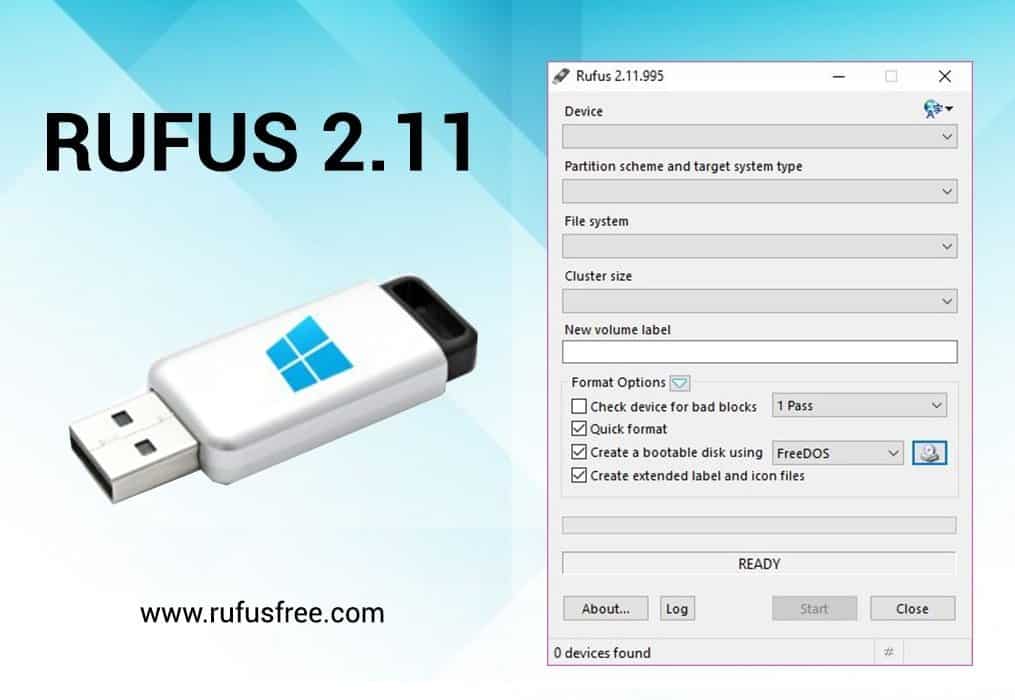
4. Now, plug in your USB.
5. Find the “Create a bootable USB drive option”
6. In the dropdown menu select the ISO image.
7. Go to the “Next” Button for the Dropdown and select the Windows 10 ISO.
8. Now, click start and wait for a few moments to get your desired USB bootable disk.
We already made a Bootable USB Pendrive. Now, plug it to any expected PC to give Windows 10 OS. Before installation, make sure your BIOS is all set up and you are ready to install Windows 10 by the bootable USB.
How To Create a Bootable USB Without Software
If you do not want to use any third-party software then following some tricks you can make any bootable Pendrive. But it is a bit difficult. The process is as follow:
1. First of all, you have to connect the external drive / Pendrive.
2. Open the Command Prompt and type “diskpart”. The new permission will seek. After allowing it a new command prompt will appear.

3. Now see the connected disk available on your PC. To get connected drive type “ list disk” and press enter.
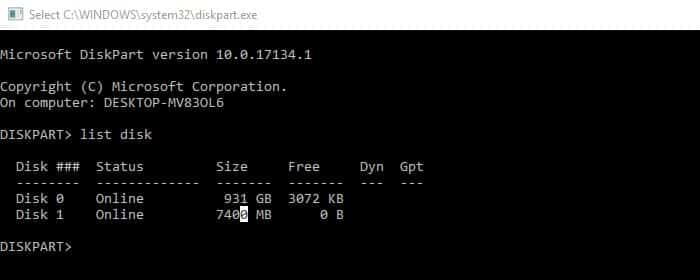
4. In the list, you have to select your desired list like select “list #”. Replace the “#” with your desired disk number. Here you will get a lot of commands to execute. But, you have to clean the drive. To do so, type “clean” and press enter.
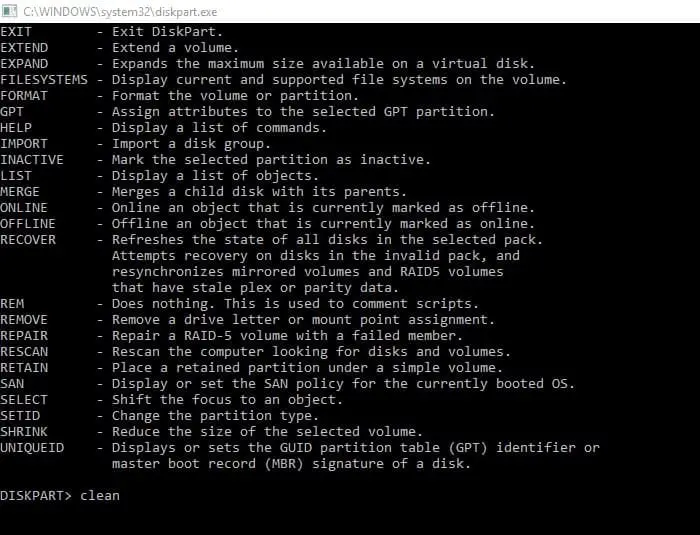
5. Once your disk is clean then you need to do the partition. The command of the partition is “create partition primary” and hit enter.
6. Now select the partition by cmd “pertition1”. Then type “active” and hit enter.
7. By typing “format fs=fat32” you have to format your Pendrive.
8. Now assign a letter to your Pendrive by command “assign”.
9. Finally, copy all the Windows 10 files to your Pendrive. The process is already discussed at the beginning of the article.
You already completed a difficult job. Now your Pendrive is bootable. You can give/install Windows 10 OS to any other PC.
Best USB Bootable Software
Making a bootable Pendrive without software it difficult. You may fail at any of the stages. So we recommend some bootable software for your external drive. You may follow any of them. Let’s have some discussion on some famous software for bootable USB.
1. XBOOT USB Bootable Software
 XBOOT is Multiboot ISO USB Creator for Windows. This little Micro boot ISo USB creator is based on windows but it supports many Linux Distributions and Utilities. It can be burnt to CD, DVD and even to any Pendrive.
XBOOT is Multiboot ISO USB Creator for Windows. This little Micro boot ISo USB creator is based on windows but it supports many Linux Distributions and Utilities. It can be burnt to CD, DVD and even to any Pendrive.
Features
- For creating Multiboot USB/ISO it is very easy to use.
- It is suitable for Antivirus rescue disk and making Linux live CD.
- Convenient to use.
2. Windows Bootable Image Creator
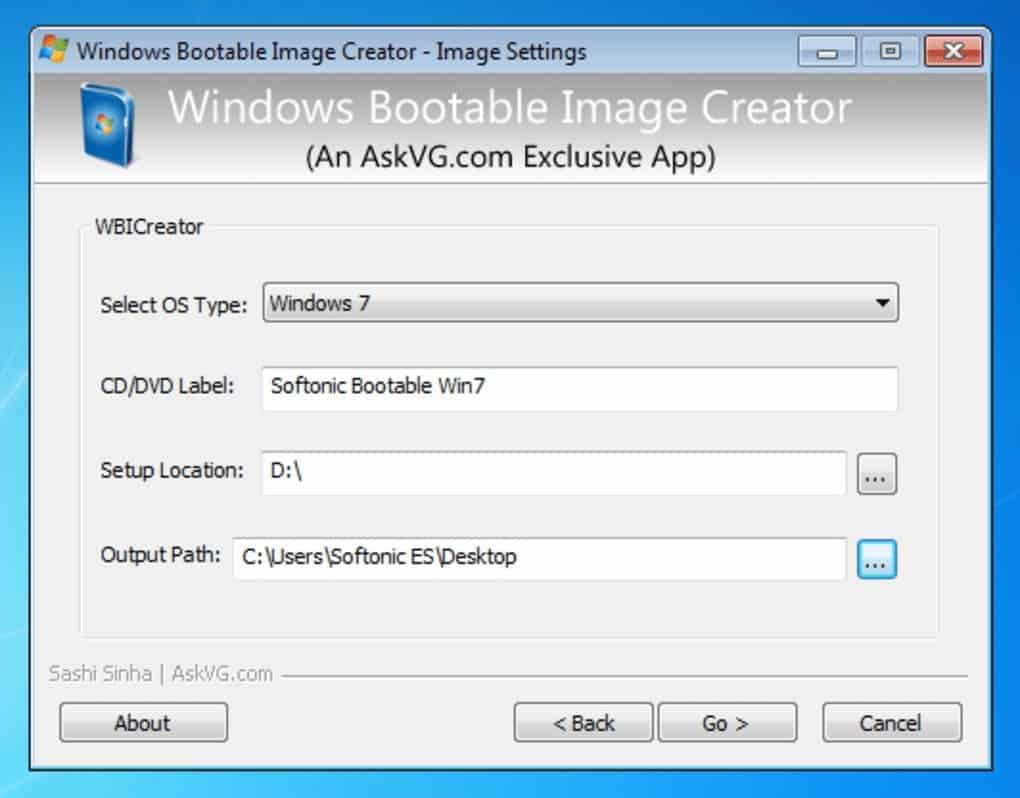 To install Windows or another program you need to create a bootable ISO image. The application is helpful for someone who wants to create a bootable external drive. The USB bootable software allows you to make a portable boot drive at any time and anywhere. It is an all in one software with a handy kit. Windows Bootable Image Creator is a free software which can be used for both 32 bit and 64-bit laptop and desktop.
To install Windows or another program you need to create a bootable ISO image. The application is helpful for someone who wants to create a bootable external drive. The USB bootable software allows you to make a portable boot drive at any time and anywhere. It is an all in one software with a handy kit. Windows Bootable Image Creator is a free software which can be used for both 32 bit and 64-bit laptop and desktop.
Get Windows Bootable Image Creator
3. RMPrepUSB
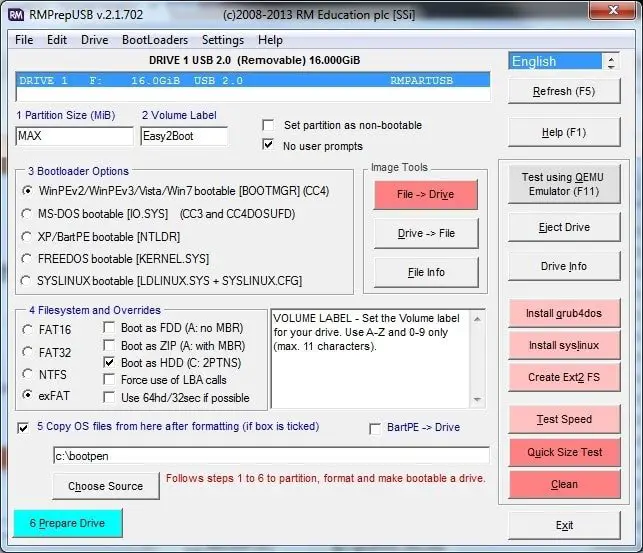 RMPrepUSB is one of the best USB bootable software for the Windows 32 bit computer. extract, copy, install, format, install, partition, and, test a boot manager. For personal uses, you can use it free of cost. The unique interface and well decorated GUI supports many languages. It is easy to use with its user manual.
RMPrepUSB is one of the best USB bootable software for the Windows 32 bit computer. extract, copy, install, format, install, partition, and, test a boot manager. For personal uses, you can use it free of cost. The unique interface and well decorated GUI supports many languages. It is easy to use with its user manual.
4. WinSetupFromUSB
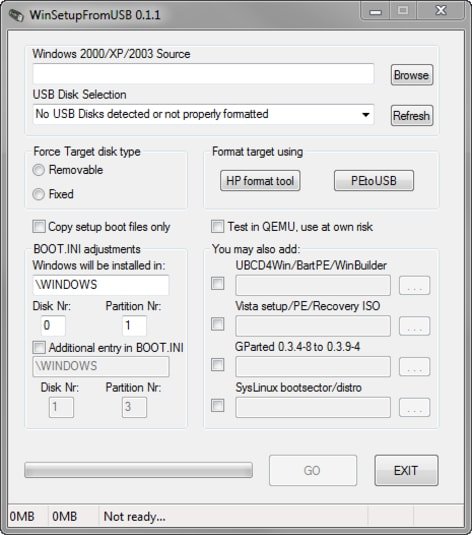 If you want to fix or install Windows you can use WinSetupFromUSB. You can use this USB Bootable software for Windows, Linux, and Dos software. It will allow you to make multiple sets of Windows OS, ISO images and SysLinux bot menu. This USB bootable software is free to download and workable for Windows 32 bit and 64-bit computers.
If you want to fix or install Windows you can use WinSetupFromUSB. You can use this USB Bootable software for Windows, Linux, and Dos software. It will allow you to make multiple sets of Windows OS, ISO images and SysLinux bot menu. This USB bootable software is free to download and workable for Windows 32 bit and 64-bit computers.
5. Universal USB Installer
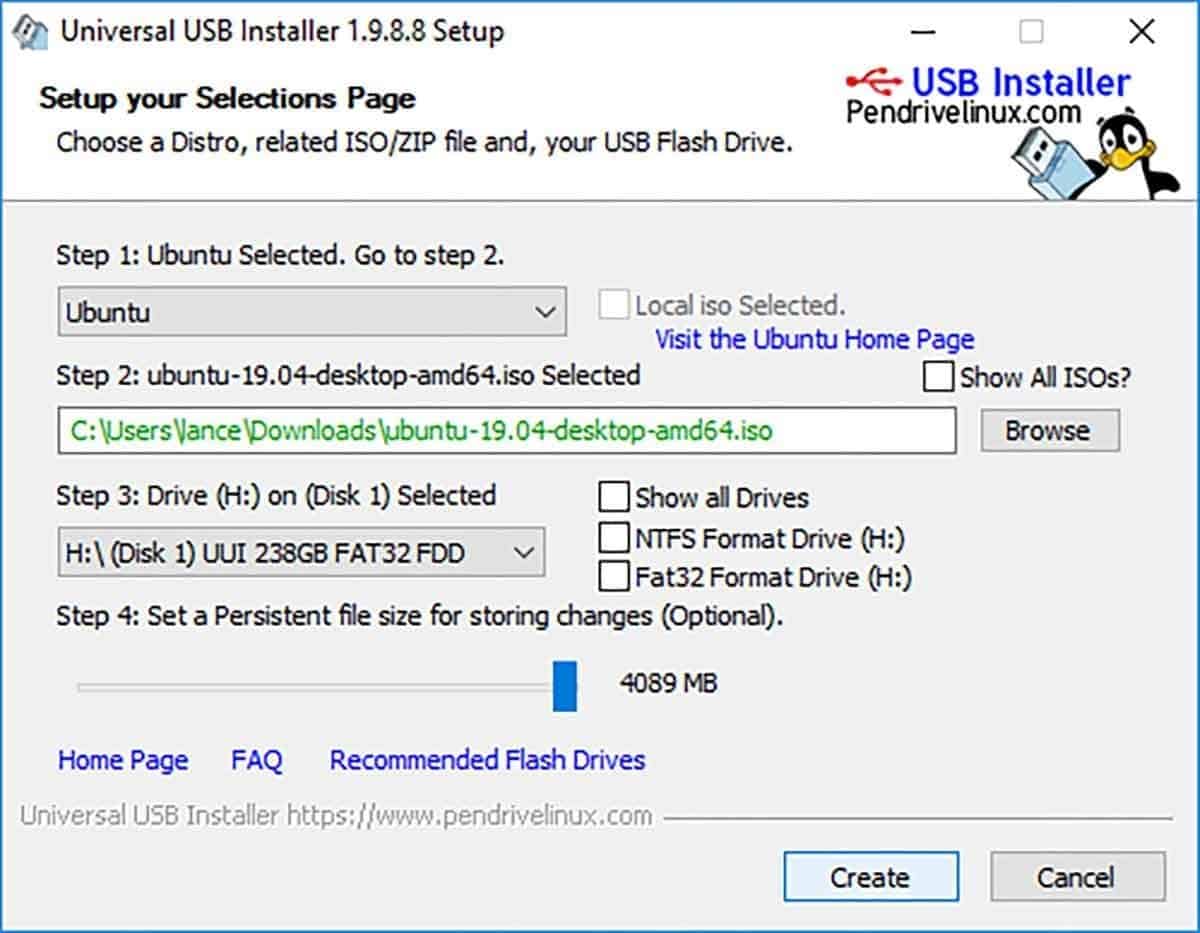 The Universal USB Installer is a Live Linux bootable USB creator to distribute Linux OS. It is very easy and simple to use. There are many new things in this USB bootable creator like Update to support Clear Linux and Pop OS, Skywave Linux, and newer Knoppix, initrd boot option for newer Ubuntu-based distributions and many more. It is freeware and supports all the language including English.
The Universal USB Installer is a Live Linux bootable USB creator to distribute Linux OS. It is very easy and simple to use. There are many new things in this USB bootable creator like Update to support Clear Linux and Pop OS, Skywave Linux, and newer Knoppix, initrd boot option for newer Ubuntu-based distributions and many more. It is freeware and supports all the language including English.
6. UNetbootin
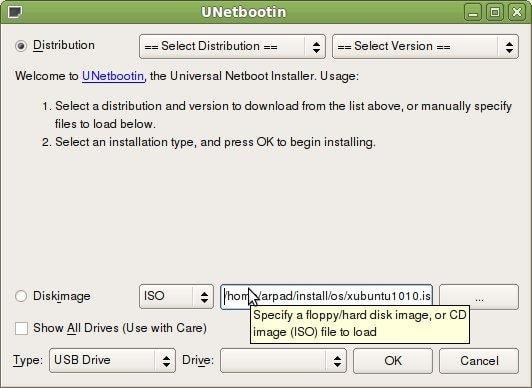 For Linux users, UNetbootin is another important USB bootable software. It allows creating live bootable Pendrive for Ubuntu and Linux operating systems. This cross-platform utility tool allows creating a verity of utility tools for Linux OS distribution. The original author of this bootable USB software is Geza Kovacs. It is written by C++ in the year 2007 but the users received the release of 2020. Like other USB bootable software is also free of cost.
For Linux users, UNetbootin is another important USB bootable software. It allows creating live bootable Pendrive for Ubuntu and Linux operating systems. This cross-platform utility tool allows creating a verity of utility tools for Linux OS distribution. The original author of this bootable USB software is Geza Kovacs. It is written by C++ in the year 2007 but the users received the release of 2020. Like other USB bootable software is also free of cost.
7. WinToFlash
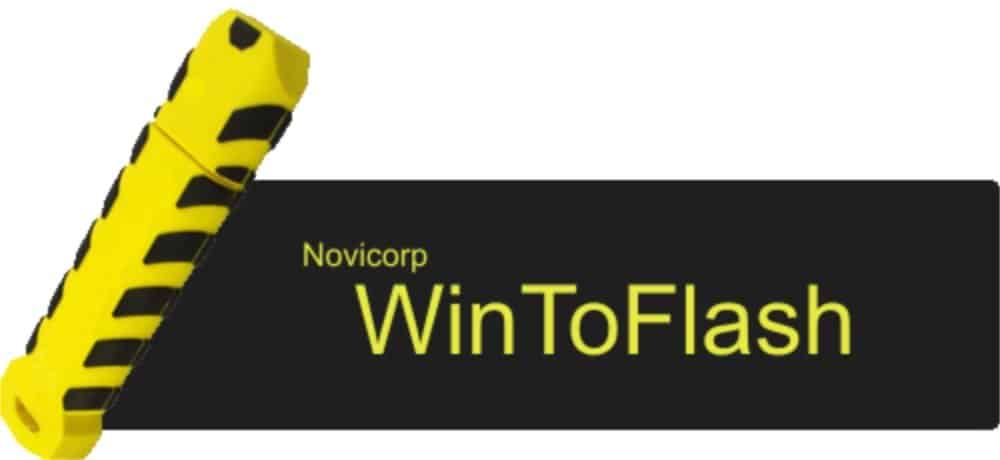 Sometimes you need Multiboot bootable USB creation, Auto-download ISO for Multiboot bootable USB and a bootable USB for any device. All of your demands will be fulfilled by WinToFlash USB bootable software. This powerful app is used by millions of users to create a bootable USB drive. Besides OS functions it is useable for creating a live Linux tool, offline antivirus, hardware test, and data recovery.
Sometimes you need Multiboot bootable USB creation, Auto-download ISO for Multiboot bootable USB and a bootable USB for any device. All of your demands will be fulfilled by WinToFlash USB bootable software. This powerful app is used by millions of users to create a bootable USB drive. Besides OS functions it is useable for creating a live Linux tool, offline antivirus, hardware test, and data recovery.
8. WiNToBootic
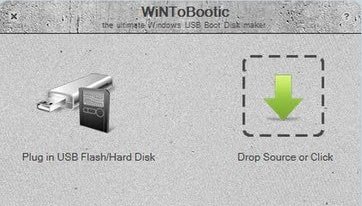 We want to recommend a wonderfully lightweight and freeware software to a bootable disk. This powerful USB boot software is highly effective for the IT experts who need frequent installation of Windows. The wonderful features include no installation, portable and lightweight. Mr. Jack has created this software for all the versions of Windows.
We want to recommend a wonderfully lightweight and freeware software to a bootable disk. This powerful USB boot software is highly effective for the IT experts who need frequent installation of Windows. The wonderful features include no installation, portable and lightweight. Mr. Jack has created this software for all the versions of Windows.
9. Windows 7 USB/DVD Download Tool
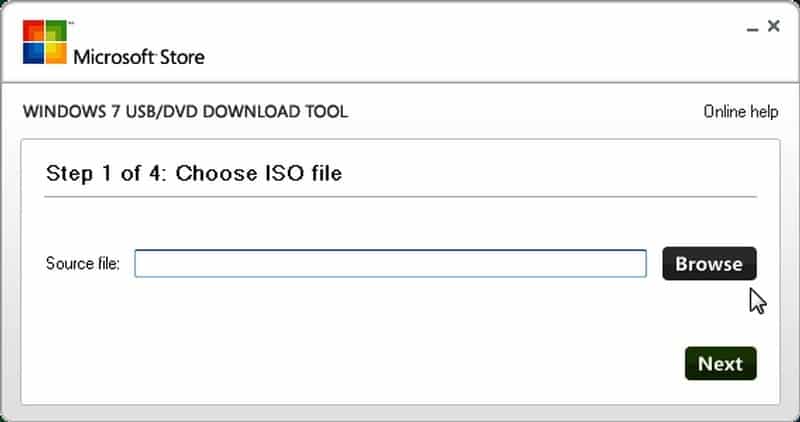 If you want to create any Windows OS ISO file you can use the Windows 7 USB/DVD Download Tool. You can download it from the Microsoft Website or Microsoft store. To create a bootable USB drive or ISO image the software is a perfect one. The size of this software is only 2.72 MB. It is also free of cost and the procedure of the use is well defined on Microsoft website.
If you want to create any Windows OS ISO file you can use the Windows 7 USB/DVD Download Tool. You can download it from the Microsoft Website or Microsoft store. To create a bootable USB drive or ISO image the software is a perfect one. The size of this software is only 2.72 MB. It is also free of cost and the procedure of the use is well defined on Microsoft website.
10. Rufus
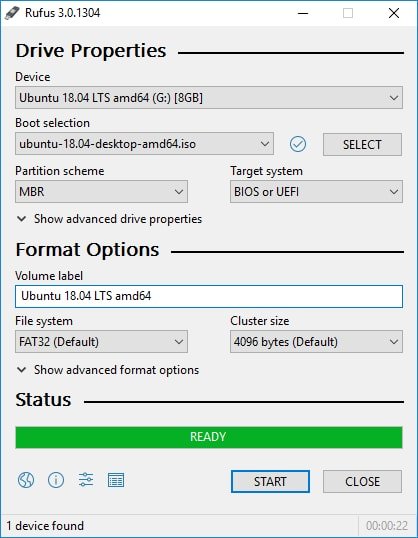 Most of us know the name of “Rufus”. It is one of the best USB bootable software that I can recommend to my readers. This smart bootable utility tool can format and create a bootable USB flash drive like a memory card and Pendrive. It is a very simple but workable tool to convert a normal Pendrive to bootable Pendrive. Like many other software, it is very small, easy to use, helpful and lightweight software.
Most of us know the name of “Rufus”. It is one of the best USB bootable software that I can recommend to my readers. This smart bootable utility tool can format and create a bootable USB flash drive like a memory card and Pendrive. It is a very simple but workable tool to convert a normal Pendrive to bootable Pendrive. Like many other software, it is very small, easy to use, helpful and lightweight software.
Get Rufus USB Bootable Software
Benefits of installing Windows with a bootable USB
There are many benefits to installing Windows on a bootable USB drive. Some of the most common reasons to do this include:
Having a backup of your computer: If something happens and you need to reinstall Windows, you can boot your USB drive and be up and running in no time.
Installing new software: If you’re a frequent user of new software, installing it on your computer can be a hassle. Install it on a bootable USB drive, you can avoid that hassle and have the software installed in just a few minutes.
Customizing your computer: You may want to change your computer’s appearance or preferences, but sometimes those changes require administrative access. By installing Windows on a bootable USB drive, you can bypass any security measures and make any changes you desire.
Recovering data: If something goes wrong and your computer needs to be reinstalled, or if you need to back up your data in case of a disaster, using a bootable USB drive is the perfect solution. Insert the USB drive into your computer, reboot into Windows, and start backing up your files.
Some Questions to Boot From USB Windows 10
When you will try to make bootable USB for windows 10 then you will get a thousand of doubt. To help you instantly some frequently answered question and answers are given below:
Is 4GB 8GB USB enough for bootable Windows 10
USB drives come in various capacities, ranging from 4GB to 128GB. The amount of space required to store the operating system and other files will vary depending on the size and type of stored files.
Therefore, it is difficult to recommend a specific USB drive size. It would be equivalent to guessing how much space would be required for particular purposes.
4GB is generally the size of a USB drive that Windows 10 will be able to boot from. If your computer doesn’t have enough storage space, you can also use an 8GB drive. The bootable USB drive to install Windows 10 will not be large enough to run in demo mode.
This means you will only be able to look around with your mouse and test a few features of the OS without being able to use any other programs. However, we recommend at least 4GB of storage for a bootable Windows 10 drive.
How to reinstall and repair Windows 10 from a USB
If your Windows 10 installation media is damaged, you can use a USB drive to reinstall or repair the operating system. Moreover, if you only need to reinstall Windows 10 onto a computer, a smaller USB might be sufficient. If you want to use the USB to repair or upgrade Windows 10, a larger size is necessary. However, follow these steps to reinstall or repair Windows 10 from a USB drive:
- Insert the USB device that you want to install.
- Now, restart your computer.
- Adjust the boot.
- Set currency, time, and language.
- Instead of clicking the Install button, click on Repair your computer.
- Click on troubleshoot and select Reset this PC.
- Here, you can see two options: to remove everything and the other is to keep my files. Choose to remove everything if you want to delete every file your PC has, or choose to keep your files if you want to them.
- After finishing the process, remove your USB from the computer and restart the PC.
How can I activate Windows 10 without a product key for free?
There are a few ways to activate Windows 10 without a product key. One of the simplest methods is to use a digital activation key. This key can be obtained through Microsoft’s online activation portal, available in various languages. Once you have received the digital activation key, you can use it to activate your copy of Windows 10.
Which software is best for bootable USB?
There are a few different bootable USB software programs available on the market. However, my personal favorite is Rufus. Rufus is a very easy-to-use program that allows you to create bootable USB drives from various sources – including Windows, Mac, and Linux operating systems. It’s also very versatile and can be used to create bootable drives for multiple purposes.
What format should USB be for Windows 10 installation?
When installing Windows 10, you should use the USB format to save your installation files. This will help avoid potential problems with your computer’s hardware or data. There are a few different formats that you can use, and each has its advantages and disadvantages. Here are the most common formats and what they do:
- FAT32
- NTFS
- exFAT
- USB 3.0
How do I install Windows 10 on a new computer without an operating system?
There are a few different ways to install Windows 10 on a new computer without an operating system – some of which are a bit more straightforward than others. Here are the three most popular methods:
- Use a USB drive
- Use a bootable CD or DVD
- Use Microsoft’s installation media.
How do I make bootable USB from ISO?
Here are the steps:
- Download and install the software you’ll use to create the bootable USB.
- Open the software and select the ISO file.
- Click the “Burn Bootable” button.
- Insert the USB drive into your computer and boot from it to install your new OS.
Will booting from USB erase data?
Sure, when you boot any PC the data of that particular partition will erase. All of your data will be wiped out. So before installing any Windows, you need to backup all of your valuable data.
What is the f12 boot menu?
f12 boot menu is the manufacturer’s instruction. When you start your computer then the PC demands the predefined key by the manufacturer for boot. Some PC has f1, f2, and f12 as boot key. It may differ from PC to PC.
How do I boot from USB not supported in BIOS?
Sometimes you may get the problem that your Pendrive is not acceptable by your BIOS. For this scenario, you can go for UEFI or legacy BIOS to set up Windows. The process is given here in graphical form.
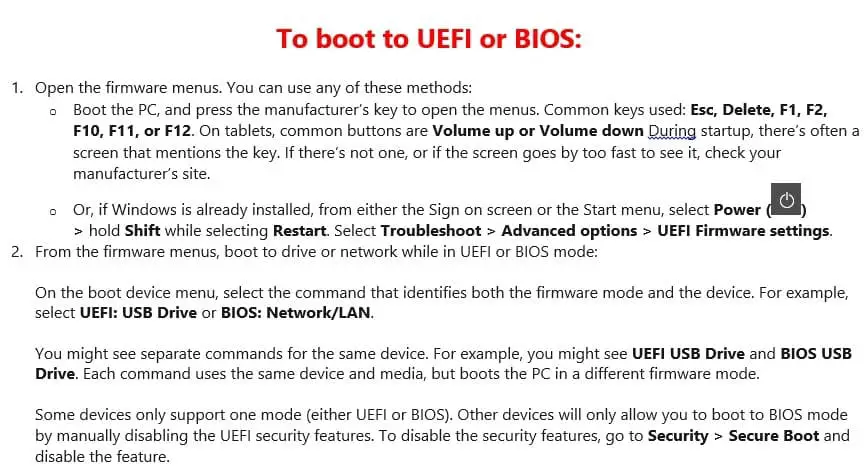
What key do I press to enter BIOS?
To set up the Windows 10 operating system you need to get access to BIOS. To get access you need to restart your PC. During the boot-up process, you need to press a key. The key is displayed during the bootup process like ” Press F2 to access BIOS”. You may also get the message “Del” for set up. There are some other keys related to doing the same job as F1, Escape, etc.
How can I tell if my USB is bootable?
After the successful completion of the USB bootable process, you have to confirm that is it bootable or not? There are many ways to check the bootability of the Pendrive. You can use two different software like MobileLiveCD and Magic ISO maker.
What is the boot sequence?
The boot sequence is a list of sequences that BIOS needs for the loadings operating system. By default hard drive is allocated for a boot but it can be reallocated to the optical drive, floppy drive and pen drive. You can call it by various names like BIOS boot sequence and BIOS boot order.
Final Thought
When you get the easy solution you should not search for the difficult one. Like that, when you need to know the procedure of how to boot from USB from windows 10 we should recommend the easier one. To make the process easier we have recommended some Best USB bootable software to install the operating system at your PC. Out of that Rufus is the most easier according to my consideration. What is your thought? Please let us inform you by comment.

Hi Hawlader,
Awesome Post! Thank you so much for sharing this informative post on the best USB bootable software & how to create bootable USB. Keep up the Good Work… Keep sharing…
Cheers,
Vikas